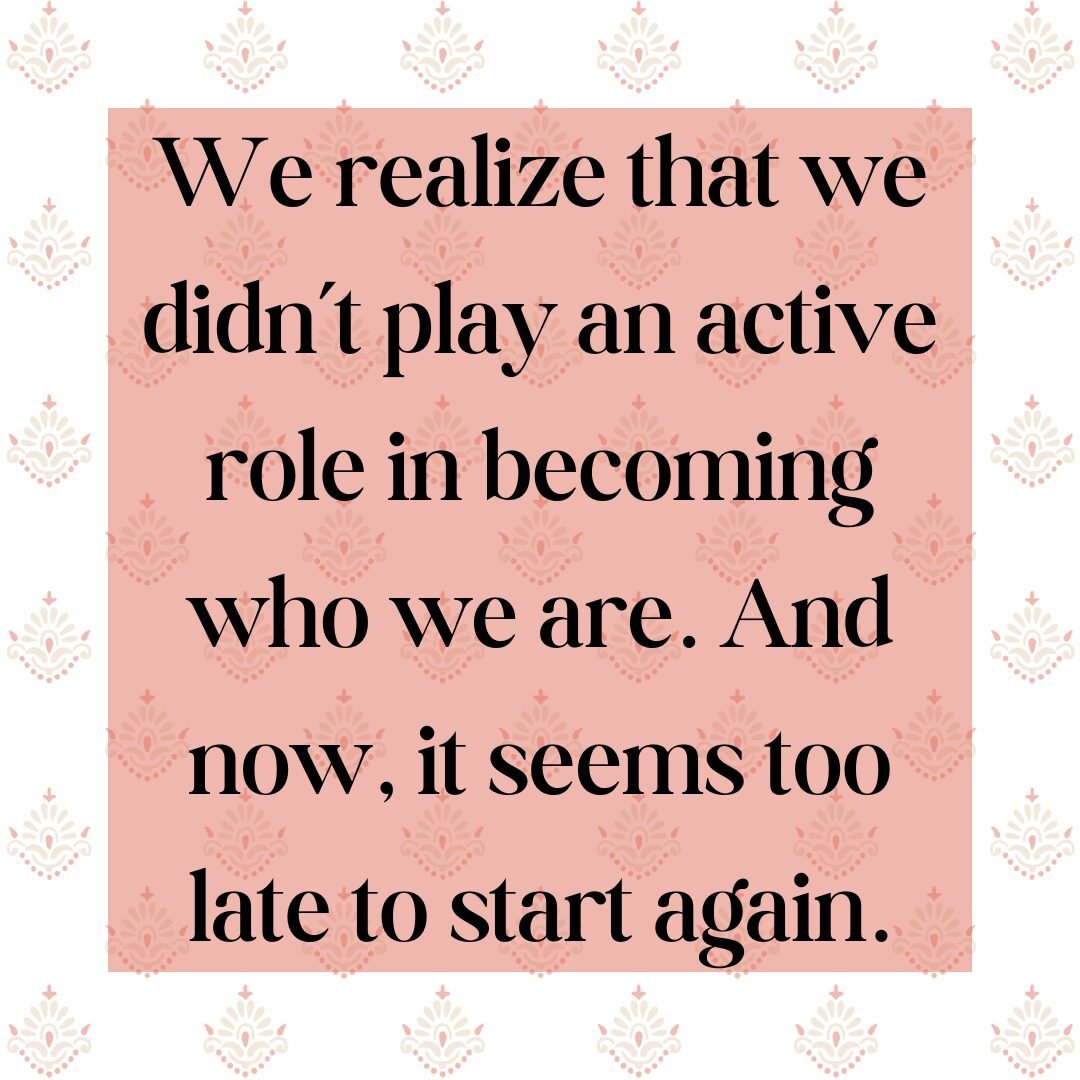There are countless factors in this world that influence and shape us. It starts from when we’re kids, before we understand the world, ourselves or life. Then one day, we realize the influences, usually the negative ones, and we feel hopeless. Even after we become somewhat conscious of the world, ourselves and life, we continue to be influenced, but we don’t notice it.
Overtime, we realize that we didn’t play an active role in becoming who we are. And now, it seems too late to start again (check out our blog: The Strongest Person Within; on why we should not blame and judge our past-selves). In an attempt to make sense of it all, we begin to blame others, like our parents, our childhood or the world for how our lives turn out.. There is some truth to this. However, if this was the only truth of the circumstances, then there might be nothing that anyone could do to overcome the influences and take control of their lives. There is an approach which I have identified in my life, which I would like to share with you.
Simply put, “why” only matters to a certain extent. Understanding why we have developed in a certain way is important but “why” should only be asked to a certain extent. If it is asked beyond the extent, it can lead to overthinking, frustration, helplessness and hopelessness.
Consider this example:
My parents weren’t the best at communicating during my childhood and I picked up those habits from them. However, at one point, I realized that many conflicts in my life could be linked to my poor communication.
So I asked myself, “why do I communicate the way I do?”. Upon reflection, I realized that everything I knew about communication was because of my parents, since I interacted with them the most.
If I continued to ask why, “why were my parents like this?”, “why couldn’t they be different?”, “why didn’t they change?”, why…, why…, why…, then it would lead me nowhere helpful or productive. Remember: “why” only matters to a certain extent, which varies depending on person and situation (you make the call). After asking ‘why’ to a beneficial and productive extent, it is important to ask other questions, which will also vary from person-to-person and situation-to situation.
Going back to the example provided:
Some questions I asked after understanding ‘why” are:
- What specifically about the communication style I’ve adopted, do I find negative for me?
- What can I change?
- How can I act?
- I identified that with my current communication style, I’m making assumptions about a person or situation, which creates confusion, that then leads to more conflict.
- I want to change by not jumping to conclusions about others. I don’t want to enter a conversation or interaction with any preconceived notions or judgements. I want to be someone who allows others to express themselves and change their minds.
- Some actions I will try to practice now is asking people if they are free before starting a conversation. I can ask others for an explanation for something, rather than initially accusing them and expecting them to defend themselves.
When I did this in my life, honestly, it took me years to identify what aspect about my communication style I disliked, what I wanted to change and how I could do so.
Doing a reflection and creating an internal change like the example provided is not easy. We may feel like it’s too much. Especially when we feel like we have so many responsibilities and roles to fill, and therefore don’t have time for self-reflection and growth. To that I would say, there are only two ways to live life:
- You can live on the receiving end of life, constantly feeling pushed and shoved around, or
- You can put in effort, and take every situation, interaction, conversation, person and experience as an opportunity to learn from and grow.
The second option might seem more difficult to do, because not only do you continue to receive the conflict, challenges and struggle that are part of life; but you also have to always try to grow (just dealing with everything and complaining may seem easier). But, a choice is there, and I hope you choose whatever you identify to be the best for you.
My intention for this blog post was to present a different perspective. Present that maybe, just maybe, it is possible for us to grow, change, and be ourselves freely, happily and truly. If who we are can only be determined by external factors (people and situations), then when do we get to exist for ourselves? When does (insert your name) get to exist?
Therefore, I think that we should change our “because of”-s into “in spite of”-s.
Turn: “because of my parents I suck at communicating”, into: “in spite of the fact that my parents struggled with communication, I will put in the effort to reflect and find a style of communication that works best for me.”
Additionally, I completely disagree with the notion of blaming our parents for everything. If we think about it, who are we actually blaming here? If we blame our parents, then wouldn’t it be our grandparent’s fault, or our great-grandparents, or great-great-grandparents, or great-great-great-grandparents, etc.
I think that it is important for us to realize that none of us have ever existed at this moment before. We’ve never lived this life on this (month), (day), (year), at this
(hour) : (minute) before. So it is okay if we get it wrong, or others get it wrong. Everyone, including you, can only do the best they know to do. If people, including us, aren’t given the chance to learn, grow and change, how can they, we, ever?
Proofreader: Kellyn Jeremy

Leave a Reply